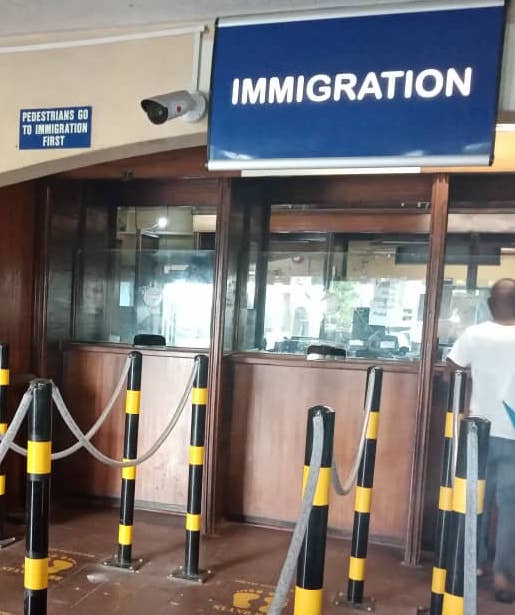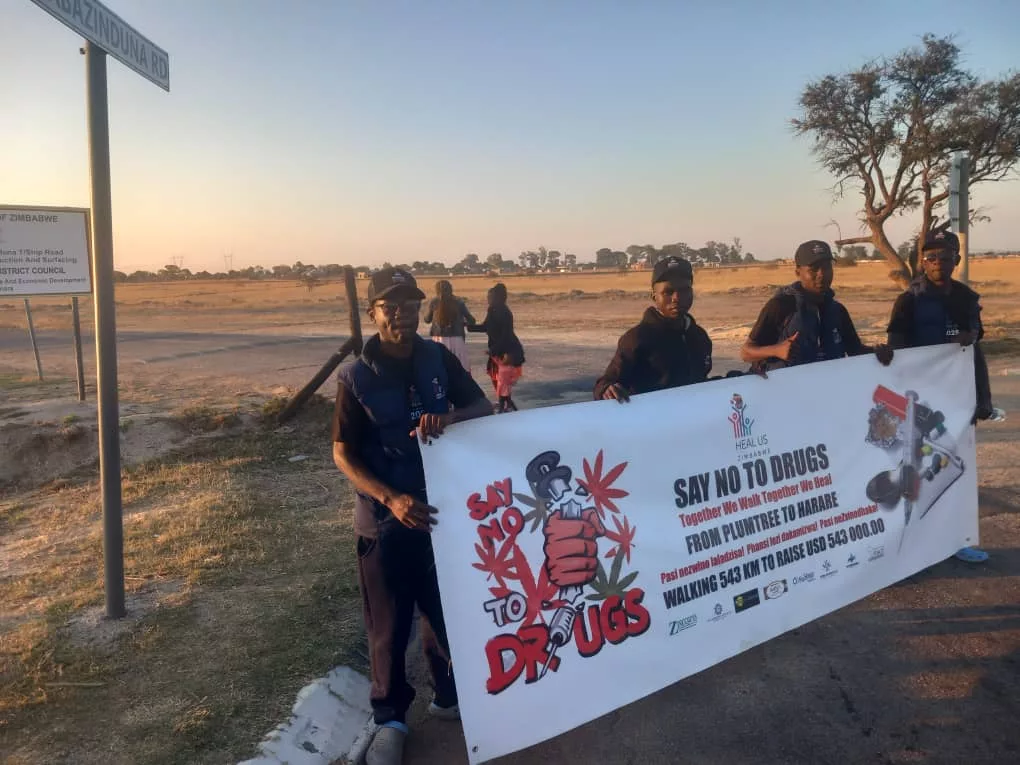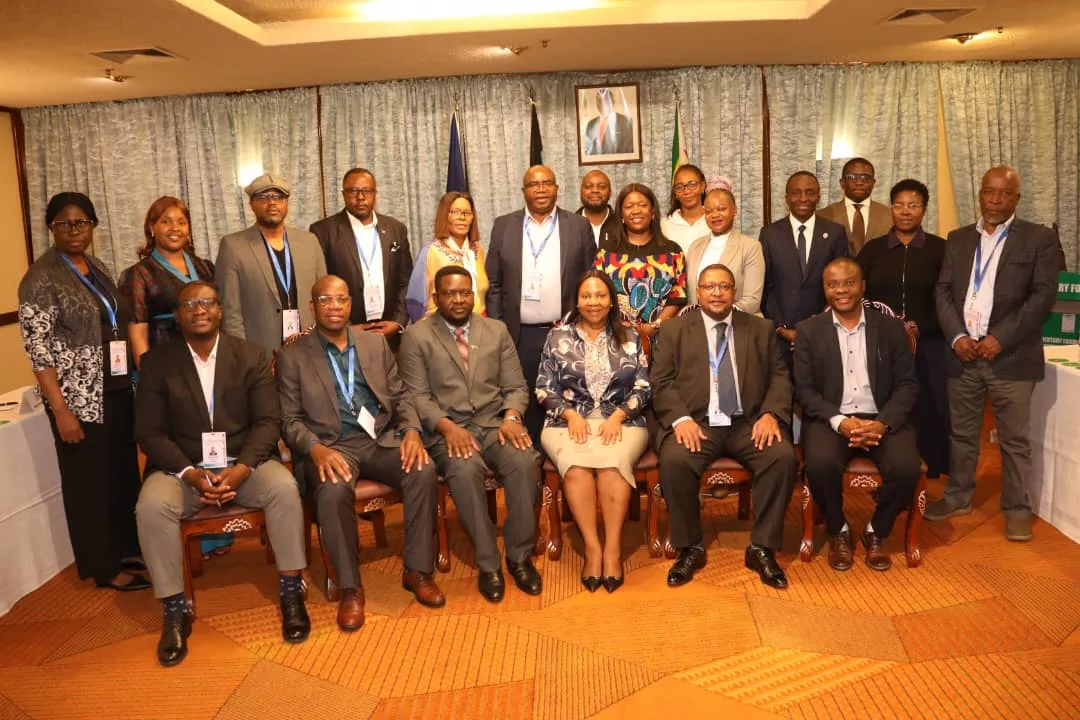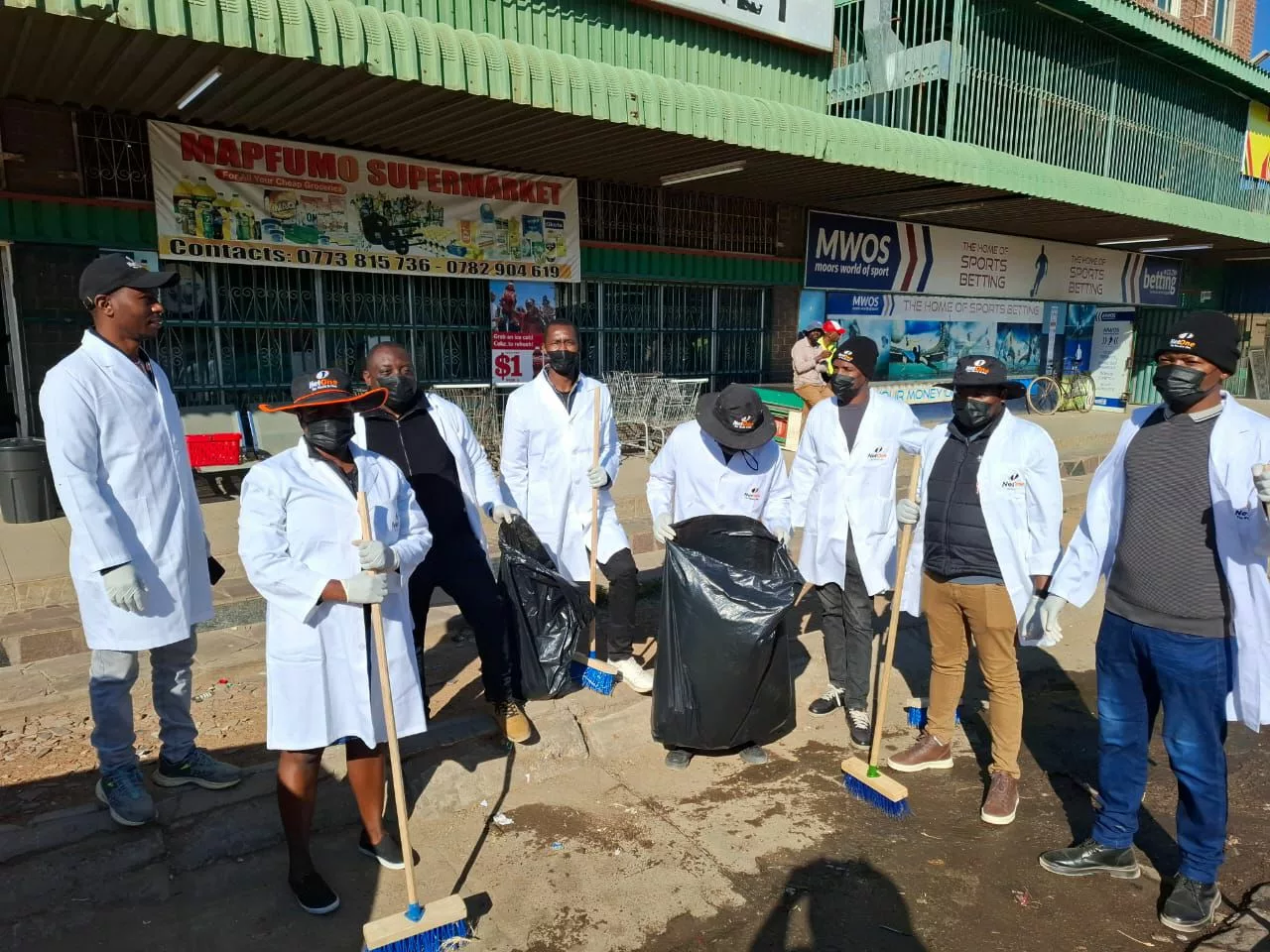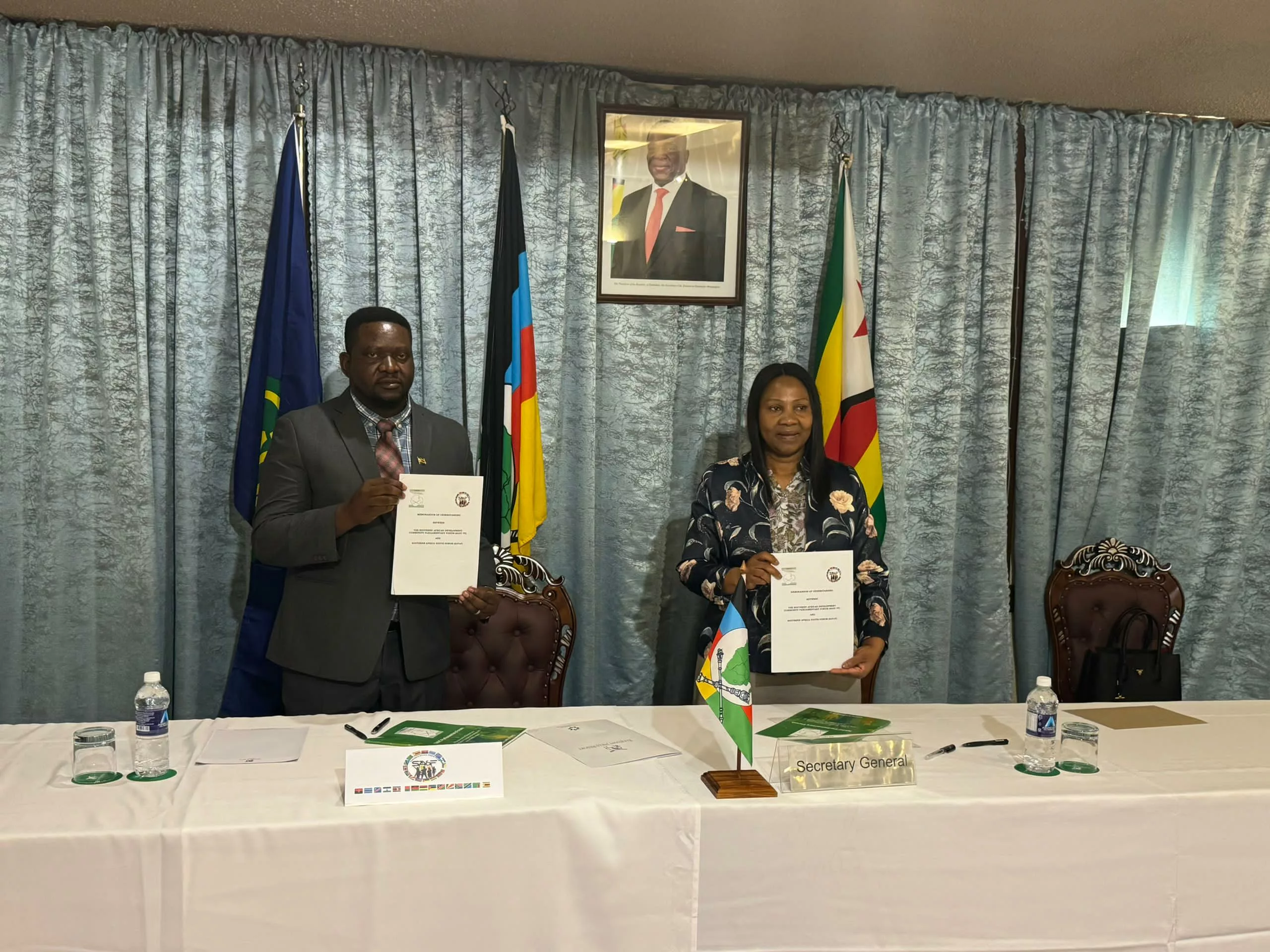BEITBRIDGE– With the Embassy of Sweden’s support, the International Organization for Migration (IOM) supported the Municipality of Beitbridge and the Department of Immigration at Beitbridge border post in strengthening COVID-19 Infection Prevention and Control (IPC) and temporary water, sanitation, and hygiene (WASH) facilities.
The Municipality was provided with 150 street bins and assisted with the installation of five, 5000 litre water tanks, while the Department of Immigration was supported with the installation of barricades and social distancing markers within the immigration clearance halls.
The bins are positioned along the major roads and business centres used by approximately 13 000 travelers daily and will improve the municipality’s solid waste management.
Similarly, the water tanks are installed within common migrants’ congregation points to improve access to clean drinking and hand washing water.
Beitbridge’s Director of Environmental and Health Services, Mr. Pio Muchena, said the initiative will go a long in improving their WASH facilities targeting hot spot areas frequented by the migrant population.
“The support provided will address some of the challenges we experienced in the last few weeks, where there was increased littering along congested roads around the Beitbridge Border Post,” said Mr. Muchena.
Prior to the installation of the barricades and social distancing markers, the infrastructure within the Beitbridge border post did not allow for a clear separation of traffic resulting in delays and congestion at clearance bays. The new system goes a long way to remedy this while encouraging adherence to social distancing regulations.
In addition to this intervention, IOM and its partners continue to support Zimbabwe in strengthening core capacities for public health measures at points of entry (PoEs). IOM’s COVID-19 emergency response has reached over 171,000 returnees with assistance through the different strategic pillars which include Risk Communication and Community Engagement, disease surveillance, Infection Prevention, and Control, Protection, WASH, and Reintegration Assistance.


